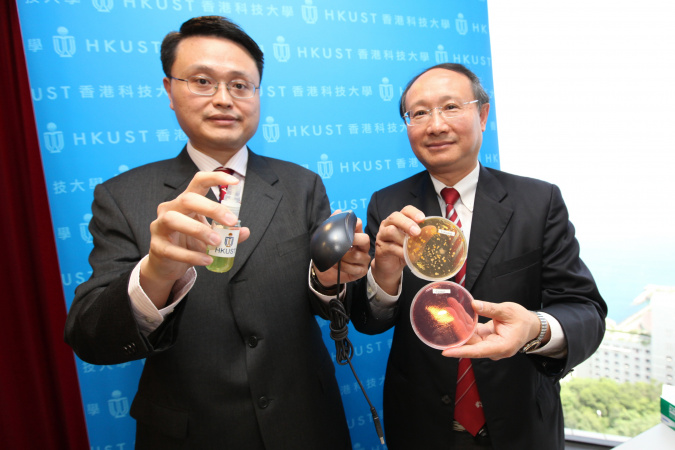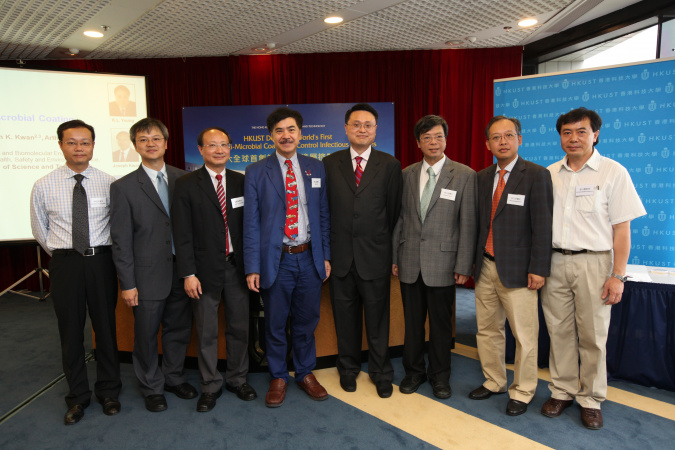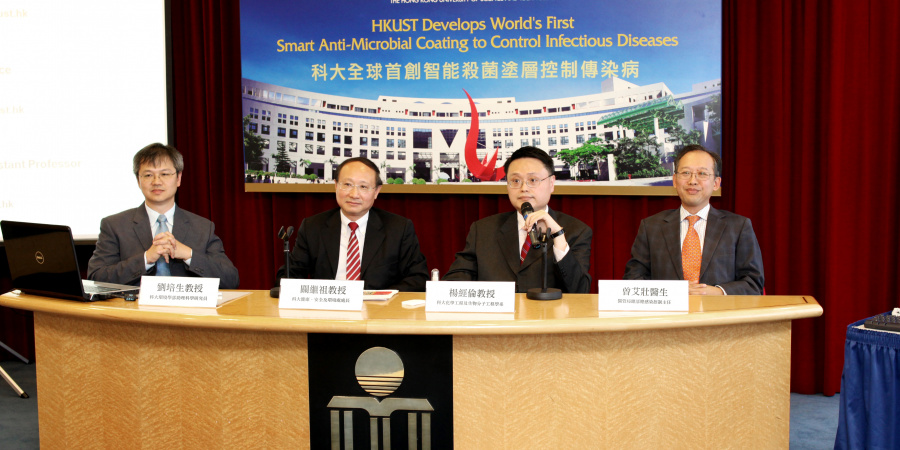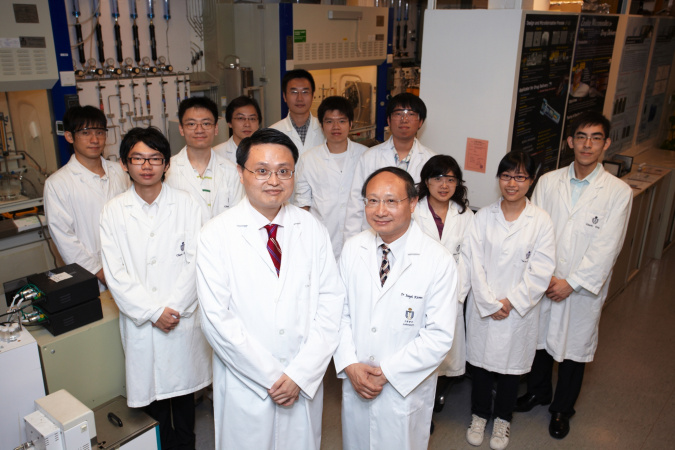HKUST Develops World’s First Smart Anti-microbial Coating to Control Infectious Diseases
The Hong Kong University of Science and Technology (HKUST) today announced the successful development of a smart anti-microbial coating that has the longest-lasting effect against the widest range of microbes.
"This revolutionary coating will set a new standard in the maintenance of public health, as it is easy to apply, safe to use, fast and effective in killing a wide spectrum of microbes, long-lasting, and environmentally friendly," said Prof King-Lun Yeung of HKUST’s Department of Chemical and Biomolecular Engineering.
"This will have monumental effect on curbing the spread of infections on a global basis. With increasing mobility, we are under increasing exposure to dangerous disease-causing microbes, such as viruses, bacteria, fungi and spores. Meanwhile, the heightened emergence of antibiotics-resistant micro-organisms presents another major global public health challenge," said Prof Joseph Kwan, Director of Health, Safety and Environment Office and Adjunct Professor in the Division of Environment at HKUST.
"As contaminated surfaces are common vehicles for the spread of microbes, keeping surfaces clean in public areas is essential in controlling the spread of infections through physical contact," Prof Kwan added.
The smart anti-microbial coating was invented by HKUST’s research team comprising Prof King-Lun Yeung, Prof Joseph Kwan, Prof Arthur Lau and their research assistants. It has a range of qualities that are unrivaled anywhere in the world.
Transparent, colorless and odorless, this smart coating can sustain surface disinfection by simply spraying on a broad array of surfaces, including glass, metals, ceramics, wood, concrete, paper and cloth.
Compared with conventional disinfecting coatings, the coating is effective for at least 30 days. It disinfects practically a full spectrum of microbes in body fluids, including saliva and blood.
According to test results, this smart coating can kill 99.9% of bacteria within one minute, 99% of H1N1 Human Swine Flu virus within three minutes, 99 % of bacillus spores within 30 minutes, and also inhibit mold and fungal growth.
The effectiveness of this coating lasts significantly longer than the conventional disinfectants, many of which will lose their function as they evaporate. On the other hand, laboratory tests showed that this smart coating is indeed capable of long-term effective surface disinfection with 100% effectiveness even after 30 days. This fast, long-lasting and broad-spectrum disinfecting coating is far superior to products available in the market today.
Besides, the smart polymer of the coating can rapidly respond to contamination from touch or droplets. Whenever our hands touch the coating, or droplets land on the coated surface, it will sense the increase in temperature from the body heat or moisture from drops, and automatically release a larger amount of disinfectant to inactivate the disease-causing microbes. This prevents another person touching the same surface from picking up the germs, become infected, and further spread the disease.
In addition, the smart coating is easy to apply and easy to remove. A simple sprayer can be used to apply the coating liquid on the desired surface. Meanwhile, the coating can be removed by washing off with detergent-in-water solution.
Approved by US Environmental Protection Agency and US Food and Drug Administration, the ingredients of this coating are non-toxic and do not lead to any observable skin reaction. Besides, the biodegradable coating does not pose any threat to the environment.
"By stopping this route of infection, disease transmission can be better controlled. This is particularly significant as there are more and more antibiotic resistant pathogenic microorganisms such as methicillin-resistant Staphylococcus aureus appearing in our community and elsewhere. The use of a smart surface coating, coupled with good hand hygiene, can help to curb the spread of these deadly microorganisms,"Prof Yeung said.
Each year, about one billion people worldwide suffer from influenza infection with fatalities reaching half a million. These figures will further increase whenever a new strain of virus emerges. Hand, foot and mouth disease is another global public health threat, and in China alone, 1.3 million cases were recorded in the first 8 months of this year. It is hoped that the anti-microbial coating developed by HKUST will make a significant contribution to addressing this issue.
With the funding support from William Mong Institute of Nano Science and Technology, and Innovation and Technology Fund, the research on this smart anti-microbial coating started in 2003. A series of field tests will soon be conducted to explore the economic feasibility of launching this smart coating to the market.
Meanwhile, patent applications have been made in the US, Mainland China, and Taiwan.




